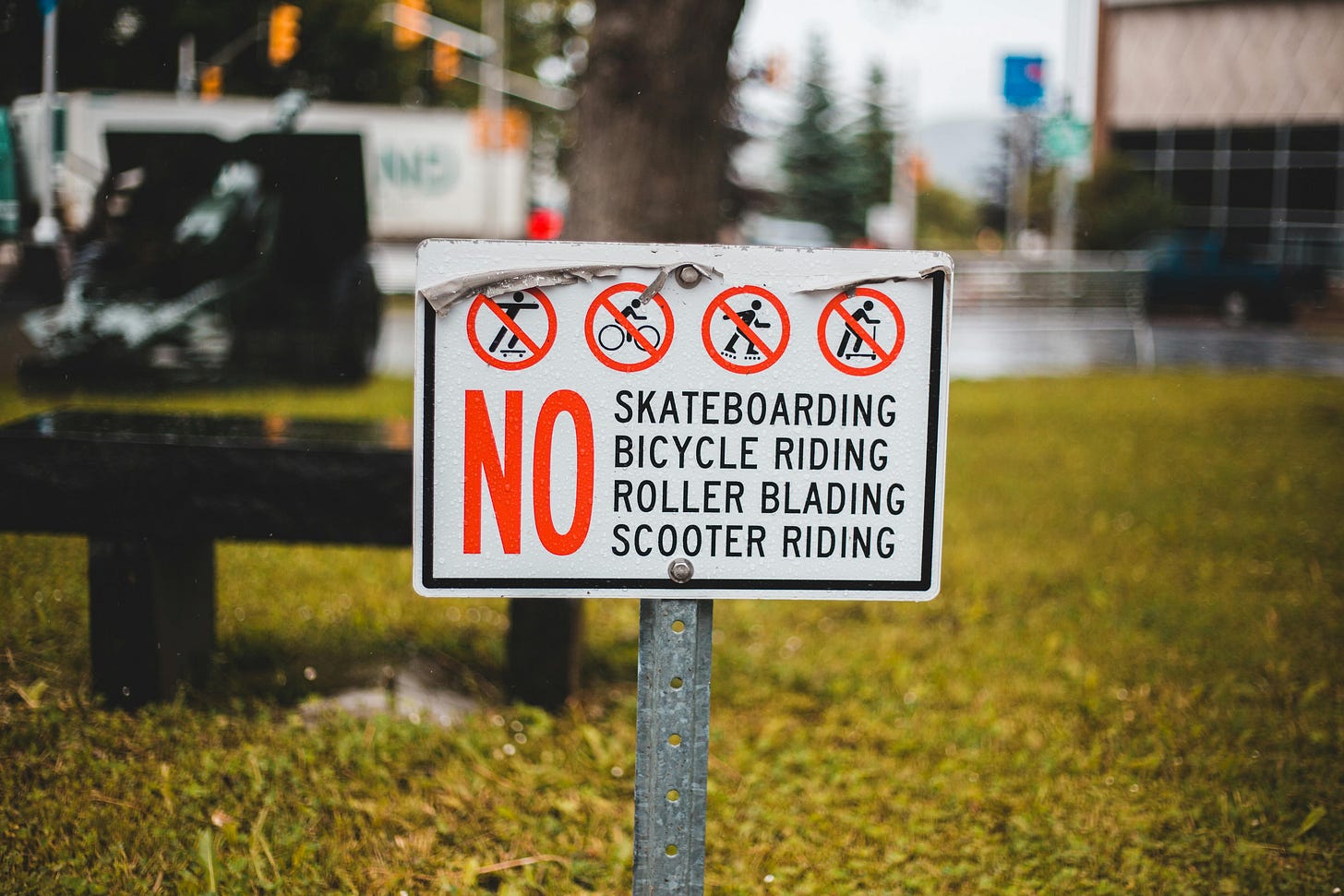Smartphones No, But Guns Yes?
Dean Burnett takes a look at the baffling world of age limits and restrictions
At the time of writing, we’re less than a week into the campaigning period in the UK, triggered by Prime Minister Rishi Sunak announcing a shock July election, and promptly launching a campaign that’s proven to be less a clown car, more a rolling clown convoy, of baffling decisions, incompetence, and meme-worthy gaffes.
For reasons, much of the current political discourse has focussed on younger people.
Labour have vowed to reduce the legal voting age to 16.
Sunak’s flagship smoking ban, which would have banned today’s younger people from ever buying tobacco products, has been reluctantly abandoned.
There is still talk of introducing a smartphone and social media ban for under-16s.
And, most shockingly/laughably, Sunak has promised to reintroduce National Service for 18 year olds if re-elected.
The countless arguments against this plan have been covered extensively elsewhere, but one intriguing aspect of the idea has been how to enforce it, to the extent that, just hours ago, government MPs were refusing to rule out fining parents, if their 18-year-old offspring refuse to cooperate.
This is just the latest of many examples of how, when politics and legislation decide how old is sufficiently old to do something, it quickly gets very confusing. And, often, counterproductive.
How old is old enough?
There are many things that young children shouldn’t be allowed to do. It would be deeply worrying to see 8-year-olds in the pub, getting their rounds in. If you passed an 11-year-old driving a car on the road, you’d want to get off the road very quickly. Nobody thinks children should be doing their GCSEs in primary school.
Such statements are blatantly obvious. But when it comes to the precise placement of the threshold, the drawing of the line, it’s much trickier.
For instance, in the UK, the age limit for driving a car is 17 and over. Which means that someone aged 16 years and 364 days can’t be trusted to be in control of a vehicle, but the same person aged 16 years and 366 days can? Why? What happens in that 48-hour period that makes them sufficiently competent?
Admittedly, you can make anything seem weird if you get this reductive about it. And a line has to be drawn somewhere, even if it is an arbitrary one. But even so, the processes of maturity and development make things more confusing than most would realise.
In nature, individuals in most species are said to be adults when they’ve matured enough to be capable of reproduction, aka a ‘biological adult’. Going by that framework, humans should be considered adults as soon as they hit puberty. So, between the ages of 8 and 13, although usually around 11 or 12.
Hopefully, nobody would agree with such a position. The idea of a 12-year-old signing up for a mortgage is wrong on many levels. ‘Adulthood’ is obviously different for humans. But this means it’s even trickier to reliably pin down the competencies and abilities of different ages.

Attempts have been made, like Piaget’s model involving stages of cognitive development. This argued that children develop according to a set series of cognitive stages, where they acquire more advanced mental abilities as they age, and hit specific milestones.
It’s an influential model, but it’s clearly not the full story. Piaget’s model is based on observations of, and interviews with, parents and children in developed twentieth century nations. So, for instance, he argued the final stage, the ‘formal operational stage’, is where children become capable of abstract reasoning, and mental arithmetic. This happens from the age of 12 onwards.
However, in other cultures with different employment norms and rules, it’s common for children under 10 years old to help with their parents business, like shops or restaurants, where they would have to perform mental calculations (what a customer owes, what change they need etc.) all the time. Despite being, according to Piaget’s models, too young to even conceive of such concepts.
The fact that brain development is as much down to what you do and experience, as it is with genes and DNA, undoubtedly makes the whole ‘maturity’ thing much harder to reliably predict and measure.
And that would be the case if the brain matured at a consistent pace, with all parts developing at the same rate. Which isn’t what happens.
This wouldn’t be as big a deal if policies and laws which involved age restrictions were consistent, and logically applied.
Unfortunately, that also doesn’t happen.

Age limits unchained.
Age limits and restrictions at work in modern society usually make a degree of sense, when viewed in isolation. But view them as a whole? Then it becomes a lot more confounding.
In the UK, the legal age of consent is 16. But the same country’s rules mean you can’t watch media depicting sex until you’re 18. So there’s a 2-year period where you can have sex, but can’t look at it? That’s quite a tricky circle to square.
The legal age of consent also logically means you can become a parent at 16, but can’t be trusted with a beer, or the vote, for another 2 years.
And that’s just the UK. Worldwide, the age of consent varies by country, culture, gender, sexual orientation, and more. In that context, it’s hard to argue that such age limits are based on consistent biological principles of maturity.
You might think the safety and protection of (immature) younger people would be a defining factor. And maybe it is, in theory. But again, it’s inconsistent. In the US, the rules are pretty strict about not purchasing alcohol until you’re 21. But in many states, it’s a lot easier to obtain firearms when much younger.
If I had to pick one, I’d much prefer my preteen son get hold of a can of Carlsberg over an Uzi. Call me a snowflake if you must.
But such inconsistencies abound wherever you look. In this country, 16-year-olds can’t be trusted to vote, drive, or drink alcohol, or (if the current Government has their way) own a smartphone. But they seemingly canbe trusted to choose exams and courses that will shape their entire life, or, as we saw, parent their own children.
There’s recently been a lot of attention around the ‘frontal lobe theory’, the idea that the human brain doesn’t finish maturing until age 25. But despite the fact that this is, at best, an unscientific misunderstanding, it’s still been applied in official legal and political contexts (like the Cass Report and Scottish Sentencing guidelines), to argue for reduced responsibilities and decision making powers for individuals below that age.
Quite how this marries up with the belief that 18-year-olds are so capable of military service that they have to be forced to do it is anyone’s guess.
Of course, any political process will be nightmarishly convoluted and complex. The decisions made in one area (e.g. alcohol consumption guidance) will likely have little or nothing to do with totally unrelated ones (e.g. military service, or driving regulations). So you’d expect to see inconsistencies.
But this is scant consolation to the young people who are actually affected by them. The ones who are expected to be mature enough to make life-defining (or, in the case of joining the military, potentially life ending) decisions, and take on all the responsibilities of seeing them through.
But who are also told they’re not mature enough to be trusted with the brief escape of alcohol. Or with driving, or voting, things which could make their lives easier, in the short or long terms.
You can justify these inconsistencies all you want, but what good is that to those who are expected to adhere to them? They’re meant to be mature enough to appreciate the importance of the decisions they have to make at this formative age, but clueless enough to not realise the rules they’re expected to obey make no logical sense.
Perhaps that is the stance of people who would genuinely say to young people “You’re responsible enough to die for your country, so we’re going to force you to do that, and if you don’t do as you’re told we’re going to fine your parents”.
I’d love to hear the justification for this stance. I suspect it’ll reveal that young people aren’t really the ones who struggle with being mature enough to make rational decisions.
Dean Burnett explores the issues of age restrictions, maturity, and the developing brain, in his new book ‘Why Your Parents Are Hung Up On Your Phone, And What To Do About It’, available September 19th.








Excellent article Dean. In practice, don't you remember when those firm authoritarian teachers banned fluoro socks in school? That got everyone pushing back and talking about the Real Issues I recall. Oh the Joys of raising smart young things. And why the Youth Service / Health Promotion Service have always employed trusted 'old hands' and cutting edge 'young leaders' for peer education programs....